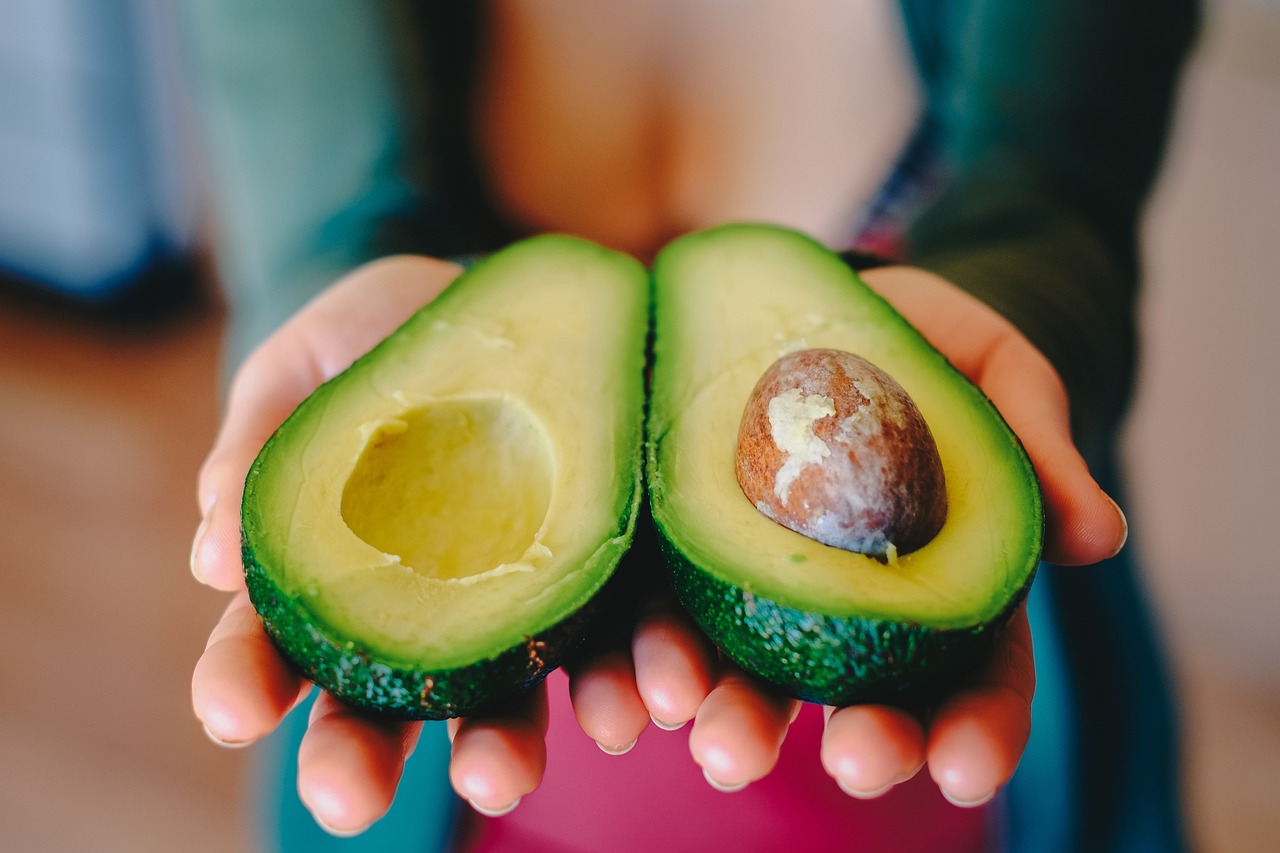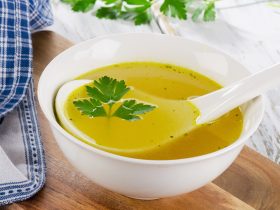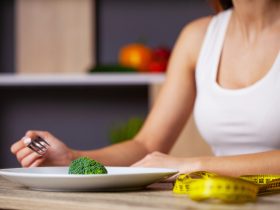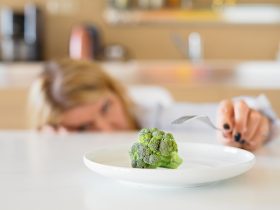The surge in popularity of the vegan diet in recent years reflects a growing awareness of its health benefits and ethical considerations regarding animal welfare. This dietary choice is now embraced not only by the general population but also by athletes, including bodybuilders. This article delves into the world of vegan bodybuilding diets, offering insights into recommended and restricted foods while providing a detailed 5-day meal plan.
Understanding the Vegan Bodybuilding Diet
Bodybuilders engage in rigorous resistance training to sculpt their physiques, and nutrition plays a pivotal role in this muscle-building process. Generally, experts recommend a daily protein intake ranging from 0.7 to 1.0 grams per pound (1.6 to 2.2 grams per kg) of body weight for optimal muscle growth.
Maintaining a calorie surplus of 10–20% is also advantageous for those looking to pack on muscle, especially for those with some training experience.
Traditional bodybuilding diets often heavily feature animal-based products due to their abundant protein and calorie content. However, vegan bodybuilding diets exclude all animal products while emphasizing higher protein intake compared to typical vegan diets.
This dietary shift poses a unique challenge for vegan bodybuilders, as plant-based proteins tend to be of lower quality than their animal-derived counterparts, potentially affecting muscle gain .
To address these challenges, careful planning is essential to ensure an adequate intake of protein, calories, and various micronutrients that may be lacking in a vegan diet.
Furthermore, the vegan bodybuilding diet may undergo modifications during different phases of a bodybuilder’s journey, such as transitioning between off-season and contest preparation, when fat loss becomes a primary goal.
How to Implement the Vegan Bodybuilding Diet
Implementing a vegan diet may initially appear straightforward, but careful planning is crucial to ensure you consume complete meals.
The vegan bodybuilding diet incorporates several key staple foods as the foundation for many meals.
To kickstart your journey on the vegan bodybuilding diet, it’s advantageous to plan your meals 5–7 days in advance, ensuring you have all the necessary ingredients, as many vegan recipes require multiple items.
If you’re transitioning from a traditional diet, consider gradually introducing more vegan foods into your regular diet before making a full switch.
Emphasize High-Protein Plant Foods
In a vegan bodybuilding diet, prioritizing protein intake is essential to support your muscle-building objectives.
Given that many vegan protein sources often lack some essential amino acids, consuming larger quantities and a diverse array of these foods is crucial to meet your protein requirements consistently.
Focusing on high-protein vegan foods like seitan, tofu, legumes, and quinoa can help you reach your protein goals and optimize muscle growth.
Additionally, incorporating vegan protein powders can be beneficial as they offer concentrated protein sources, which can be strategically consumed during workouts and throughout the day.
Ensure Adequate Fat Intake
Sufficient fat consumption provides the necessary calorie density to promote muscle gain, as fat offers twice as many calories per gram compared to carbohydrates and protein.
For off-season bodybuilders, the general recommendation for daily fat intake is around 0.5 grams per pound (1 gram per kg) of body weight.
For instance, a male bodybuilder weighing 175 pounds (80 kg) would aim for approximately 80 grams of fat per day.
When embarking on a vegan bodybuilding diet, it’s advisable to monitor your macronutrient intake—protein, carbohydrates, and fat—particularly during the initial weeks to ensure you’re meeting your nutritional requirements.
Stay Hydrated
Incorporating a vegan bodybuilding diet often means increased consumption of fruits, vegetables, grains, and legumes, leading to a higher fiber intake.
Elevated fiber intake can potentially lead to side effects like bloating, excessive gas, and abdominal discomfort.
To mitigate these issues, maintaining adequate hydration is essential. A good starting point is aiming for a minimum of 1 milliliter of fluid per calorie consumed.
For instance, if your daily caloric intake is 2,000 calories, strive for 2,000 milliliters (or 68 ounces) of fluids. Remember that your water requirements may vary, particularly during physical activities.
Invest in Education
Education is pivotal in successfully adhering to a vegan diet and distinguishing between a fruitful and unsuccessful dietary journey.
Since the vegan diet excludes various food groups, it presents a risk of potential nutrient deficiencies.
To safeguard against such deficiencies, it’s vital to understand which foods can provide the essential nutrients that the diet might otherwise lack.
Fortunately, as the popularity of the vegan diet has surged, a wealth of educational resources has emerged to guide you in the right direction.
Potential Benefits of the Vegan Bodybuilding Diet
The vegan diet is linked to several potential health advantages.
Reduces Heart Disease Risk
Individuals adhering to vegan diets exhibit a significantly reduced risk of developing heart disease. This can be attributed in part to a lower consumption of saturated fats and cholesterol, coupled with a higher fiber intake and a variety of plant compounds.
Traditionally, vegans often maintain lower blood pressure levels and possess lower total and LDL (bad) cholesterol levels compared to the general population. Furthermore, the vegan bodybuilding diet, rich in fruits and vegetables, contributes to a substantial dietary fiber intake. Elevated fiber consumption is associated with a decreased incidence of stroke and heart disease.
Can Promote a Healthy Body Weight
Individuals adhering to a vegan diet typically boast a lower body mass index (BMI) than those following a traditional Western diet, reducing the risk of various disease factors. In a 16-week study involving 75 individuals with excess weight, the vegan diet proved more effective in improving body weight, fat mass, and markers of insulin resistance compared to a control diet. Therefore, if you’re embarking on a bodybuilding journey with a weight loss goal, the vegan diet may offer benefits in that regard.
May Protect Against Certain Cancers
Following a vegan diet is associated with a reduced risk of several types of cancer when compared to a traditional Western diet. This effect is likely due to increased consumption of legumes, fruits, and vegetables, leading to higher intakes of fiber, micronutrients, and phytonutrients.
Additionally, the vegan diet’s connection to reduced BMI is noteworthy, as a high BMI is a risk factor for certain types of cancer. Moreover, increased consumption of soy, a typical component of vegan diets, has been linked to a decreased risk of breast cancer in women.
Finally, varying levels of processed red meat consumption have been associated with an elevated risk of colorectal cancer, a risk that does not apply to individuals following a vegan diet.
Considerations Regarding the Vegan Bodybuilding Diet
While the vegan bodybuilding diet offers numerous potential benefits, it’s important to be aware of some associated downsides.
Increased Risk of Nutrient Deficiencies
A significant drawback of the vegan bodybuilding diet is the heightened risk of nutrient deficiencies. The exclusion of animal products reduces the intake of essential nutrients, particularly calcium, omega-3 fatty acids, iron, zinc, and vitamins B12 and D.
To ensure adequate intake of these nutrients, many individuals may need to incorporate a vegan multivitamin into their dietary regimen. Additionally, vegan omega-3 supplements, typically derived from algae, are available as an alternative.
While fortified vegan foods can provide these nutrients, acquiring proper nutritional education is pivotal when transitioning to a vegan diet.
Elevated Fiber Intake
Another potential challenge of the vegan bodybuilding diet is its high fiber content. Although a high fiber intake is generally deemed healthy, excessive consumption can lead to digestive discomfort, including bloating, excessive gas, and abdominal discomfort.
The recommended dietary fiber intake is 14 grams per 1,000 calories, which equates to around 25 grams for women and 38 grams for men. Vegan diets frequently surpass these levels. Excess fiber may also induce a sense of fullness and reduced appetite, potentially limiting progress in bodybuilding if sufficient calories are not consumed.
Challenges in Meeting Protein and Calorie Needs
The vegan bodybuilding diet primarily revolves around nutrient-dense, high-fiber foods. Consequently, meeting protein and calorie requirements can be challenging without careful planning.
Vegan diets typically offer fewer calories than traditional diets, primarily due to the exclusion of higher-calorie animal-based foods. Consequently, adhering to a vegan bodybuilding diet may present difficulties in consuming more calories than the body expends, a critical aspect of bodybuilding progress.
Strategies to counteract this challenge include increasing portion sizes, incorporating healthy fats into meals, and opting for cooked vegetables over raw ones to reduce volume while maintaining nutritional value.
Potential for Overly Restrictive Eating
For some individuals, eliminating animal-derived products in the vegan bodybuilding diet may be overly restrictive. While the availability of vegan food has expanded considerably in recent years, some may perceive the diet as monotonous compared to the traditional Western diet. However, a vast array of creative vegan recipes can inject variety and excitement into the diet, making it both enjoyable and nutritionally fulfilling.
Recommended Foods for the Vegan Bodybuilding Diet
The vegan bodybuilding diet typically incorporates a wide range of nutrient-rich foods:
- Beans and Legumes: These are excellent sources of both protein and fiber.
- Hemp, Flax, Sunflower, and Chia Seeds: Rich in protein and omega-3 fatty acids.
- Quinoa and Amaranth: These pseudograins offer complete sources of protein.
- Meat Substitutes: Designed to resemble and mimic meat, often made from soy or pea protein.
- Soy Products: Examples include tofu, tempeh, edamame, soy milk, and soy protein powder.
- Calcium-Fortified Plant Milks and Yogurts: These fortified products aid vegans in meeting their daily calcium and vitamin D needs.
- Spirulina: A blue-green algae boasting substantial protein content, alongside numerous vitamins and minerals.
- Vegan Protein Powders: Opt for varieties combining protein sources like peas, hemp, and brown rice.
- Nutritional Yeast: Employed in vegan cuisine for its savory flavor and often fortified with vitamin B12.
- Sprouted Grain Breads: A valuable source of protein and complex carbohydrates.
- Oats: Oatmeal and oats offer notable protein content per serving, in addition to beneficial fiber.
- Fruits and Vegetables: Essential components of any vegan diet.
- Whole Grains and Cereals: These furnish protein, B vitamins, and fiber.
- Nuts and Nut Butters: Serve as substantial protein sources when combined with complementary proteins, and they also provide healthy fats.
- Tahini: Derived from sesame seeds, it delivers healthy fats and a modest protein content.
- Healthy Oils: Varieties like olive, avocado, and hempseed oil provide valuable sources of healthy fats and essential omega-3s.
- Vegan Dark Chocolate: Packed with antioxidants, it contains essential vitamins and minerals, including calcium, iron, potassium, magnesium, and vitamins A, B, and E.
Foods to Avoid on the Vegan Bodybuilding Diet
The vegan bodybuilding diet involves avoiding or limiting specific food categories:
- Animal Foods: Meat, fish, poultry, dairy, eggs, and bee products are completely excluded from the vegan diet. Additionally, certain animal-derived additives found in various foods also fall under this restriction.
- Foods with Uncertain Vegan-Friendly Status: Some products like certain breads, deep-fried foods, candy, potato chips, and dark chocolate may contain ingredients of animal origin and should be approached with caution.
- Vegan Junk Food: While vegan, items like candy, ice cream, and certain vegan protein bars should be consumed in moderation, as they often contain high levels of refined sugar and calories.
- Mock Meats and Cheeses: These processed products may include additives and typically offer fewer nutrients compared to whole foods. Consequently, it’s advisable to limit their consumption.
Sample 5-Day Vegan Bodybuilding Diet Meal Plan
While calorie and macronutrient requirements vary from person to person, here’s a sample 5-day meal plan for the vegan bodybuilding diet:
Day 1
Breakfast: Start with protein oatmeal containing oats, vegan protein powder, soy milk, banana, and a dollop of nut butter.
Lunch: Savor a tofu stir-fry, combining extra firm tofu, vegan pasta, beans, red lentils, celery, onion, and spinach.
Dinner: Delight in teriyaki tempeh paired with broccoli and quinoa.
Snack: Enjoy a refreshing strawberry-banana protein shake.
Day 2
Breakfast: Relish breakfast burritos featuring a tofu scramble and assorted vegetables wrapped in vegan tortillas.
Lunch: Indulge in a lentil loaf prepared with lentils, kidney beans, veggies, and nutritional yeast.
Dinner: Satisfy your taste buds with a black-bean veggie burger complemented by sweet potato fries.
Snack: Fuel up with peanut butter and oatmeal snack bars.
Day 3
Breakfast: Kickstart your day with hummus toast featuring sprouted grain bread, hummus, hemp seeds, and sunflower seeds.
Lunch: Dive into a vegan burrito bowl complete with rice, beans, and homemade mock taco meat.
Dinner: Savor a sweet-and-sour stir-fry featuring tofu, rice noodles, and a medley of vegetables.
Snack: Enjoy a mock tuna salad sandwich.
Day 4
Breakfast: Relish a chocolate-peanut-butter smoothie bowl composed of bananas, peanut butter, almond milk, vegan protein powder, and cocoa powder, adorned with toppings of your choice.
Lunch: Try black bean and quinoa “meat” balls served over whole grain vegan pasta.
Dinner: Warm up with vegan chili made from tofu mince, kidney beans, tomatoes, and red lentils.
Snack: Satisfy your cravings with roasted chickpeas sprinkled with red pepper flakes.
Day 5
Breakfast: Start your day with protein pancakes crafted from whole grain flour and vegan protein powder, crowned with toppings of your preference.
Lunch: Relish a coconut-tofu-curry stir-fry featuring tofu, soba noodles, and edamame.
Dinner: Enjoy a vegan sloppy joe prepared using lentils and an array of veggies.
Snack: Treat yourself to a chocolate-peanut-butter protein shake.
In Conclusion,
The surging appeal of the vegan diet has piqued the interest of diverse individuals, including members of the bodybuilding community.
In contrast to conventional bodybuilding diets rich in animal protein, the vegan bodybuilding diet completely excludes animal-derived products while prioritizing higher protein intake compared to typical vegan diets.
Adopting a vegan diet can yield numerous health advantages, yet it presents specific challenges in the context of bodybuilding, which warrant careful consideration.
Before embarking on a vegan diet, it is advisable to seek guidance from a healthcare provider or nutritionist.














Find Us on Socials